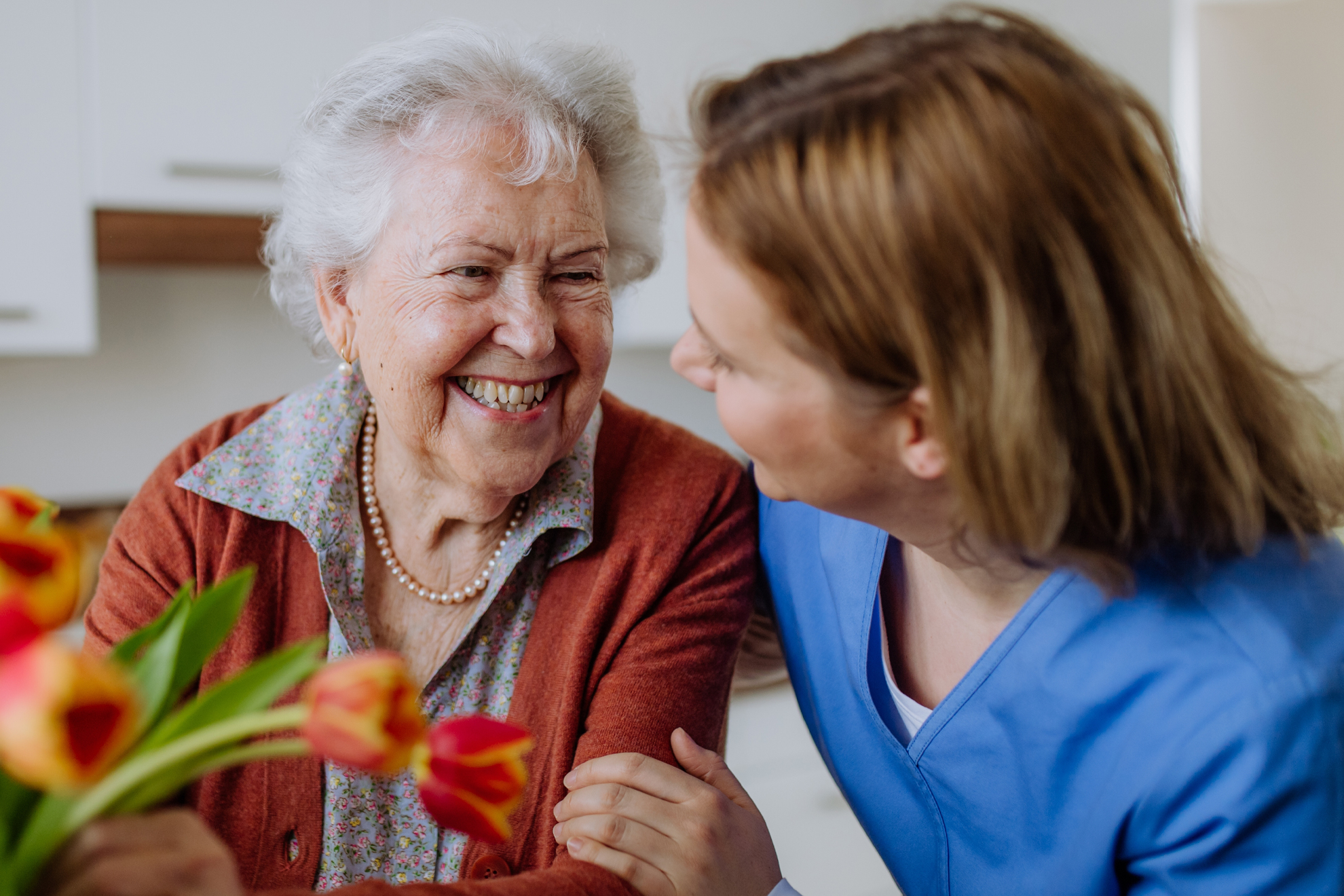Share
As our loved ones gracefully age, we may need to reassess home safety, which includes kitchen safety.
Many seniors use the area to socialize as well as prepare meals. While your aging loved ones may still have the energy to make special recipes, they may face new hazardous challenges around the kitchen as they continue to age.
Tthe Caring Home Care team has provided some simple steps you can take to help make the kitchen a safer place for your aging loved ones.
Tidy Up and Organize the Kitchen Space
Basic kitchen safety begins with getting rid of all the clutter on the floors, tabletops, or countertops.
Ensure your loved ones have sufficient lighting in the kitchen, so they can see clearly.
Be sure to store any sharp objects and silverware in a safe place. It is also advisable to invest in unbreakable plates, cups, and bowls.
Tips for organizing the kitchen:
- Make everyday items accessible on the counter but also allow room for actual meal preparation
- Keep electronics under the counter when not in use
- Safely store knives instead of leaving them on holders on the counter.
- Review your kitchen plan to see if it is possible to remove cabinets all together to allow for easier access
You might also want to keep kitchen floors dry to avoid accidental falls. Consider using non-slip kitchen mats near sinks to help not only keep areas dry but also decrease fall chances.
Fire Safety
Fires have been identified as the third-leading cause of accidental injuries and deaths at home.
Install adequate smoke alarms now and then, practice fire drills. You may go an extra step and have fire sprinklers installed in your kitchen where applicable and elsewhere around your house. Be sure to have fire-retardant materials and kitchen fabrics for added safety for you and your loved ones.
Additional fire safety tips:
- Once you are done prepping meals, double-check that all cooking appliances are turned off.
- Regularly check for gas leaks and electrical faults.
- Avoid any flowing clothing items in the kitchen as this significantly lowers the risk of the fabric catching fire or latching onto something and possibly causing injury.
It may also be advisable to not keep candles in the the kitchen (or anywhere in the home). Scented plug-ins could be a good alternative option if your loved one wants to mask kitchen scents.
Keep Your Loved Ones Safe with a Caregiver
Supervising your loved ones while they help prepare meals is a sure way to keep them safe. It also means an extra pair of hands is around to help with dangerous kitchen equipment such as knives and fire hazards.
While it may be your intention to keep a watchful eye on your aging loved one, sometimes that option may not be possible with your schedule.
Enlisting the help of a certified caregiver can help to provide not only kitchen assistance but also peace of mind for you and your loved one. Caring Home Care can connect you with a certified in-home caregiver that is available to provide help with meal prep, cooking, cleaning, grooming, bathing and more.
Choosing the right care option for a loved one can be a pivotal decision for many families. This blog delves into the advantages of in-home care versus nursing homes, providing essential insights to guide this important choice. Understanding In-Home Care: In-home care offers personalized, one-on-one assistance within the comfort of one’s own home. It’s tailored […]
Live-in care is a comprehensive form of assistance that offers round-the-clock support to individuals in their own homes. This blog explores the concept of live-in care, the benefits it provides, and how it stands apart from other home care services. Defining Live-In Care Services: Live-in care involves a caregiver staying in the home 24/7 to […]
Recovering from surgery can be a challenging journey, particularly when transitioning from hospital to home. This blog offers essential advice for a smooth transition, highlighting the supportive role of Caring Home Care’s unskilled care services tailored to the individual’s needs during this critical period. Understanding Post-Surgery Home Care Needs: Transitioning home after surgery involves understanding […]
In the world of healthcare and home care, the roles of caregivers and nurses are often confused, yet they are distinct in their responsibilities, training, and the nature of their work. This article explores the five main differences between caregivers and nurses, shedding light on their unique contributions to patient care. Educational and Training Requirements […]
Need A Caregiver? Fill Out Form Below
With our competitive rates, we make receiving in-home care affordable regardless of whether you’re using your insurance or paying out of pocket.






